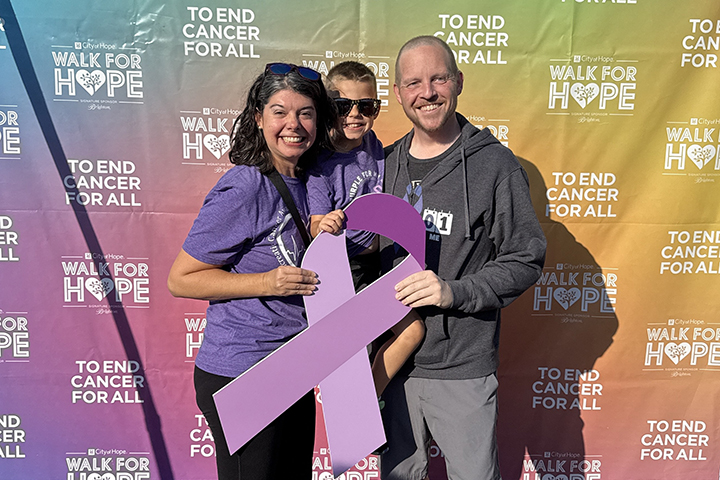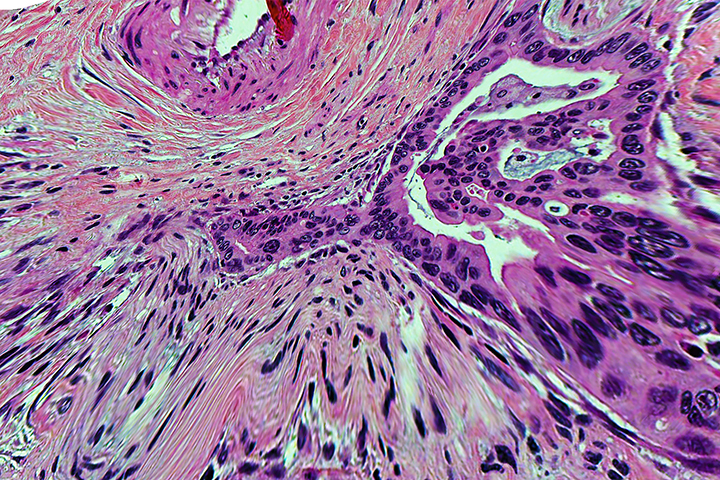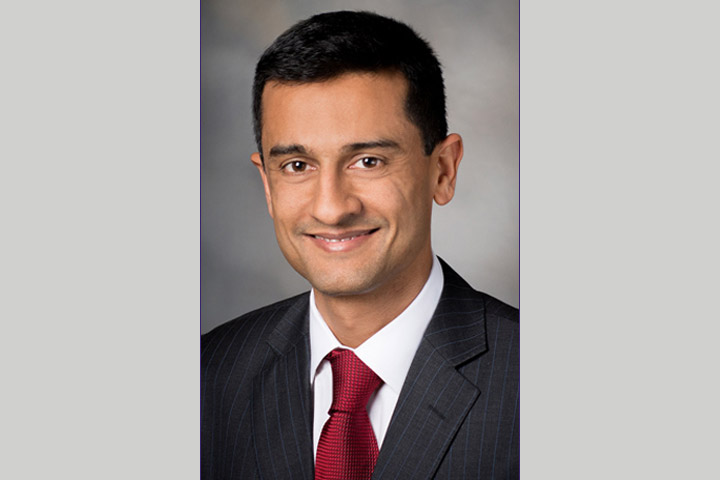Drafting Your Health Care Team

Pancreatic cancer is complicated.
Diagnosis often requires a number of tests and the standard of care is constantly evolving. That’s why it’s important to have a health care team—a team of experts—in your corner when you’re facing pancreatic cancer.
“The best pancreatic cancer professionals don’t work in a vacuum,” explains Dr. Allyson Ocean, a medical oncologist at Weill Cornell Medicine in New York. “Instead, pancreatic cancer care requires a group of professionals who specialize in different areas.”
A Multidisciplinary Team of Experts
Pancreatic cancer care professionals extend beyond medical doctors. They include health care professionals ranging from genetic counselors and registered dietitians to pain specialists and social workers.
Together, this group diagnoses the disease, determines the extent of the cancer, and identifies the best treatment options for each individual patient. They also help pancreatic cancer patients navigate the emotional and physical toll of cancer and its treatments. Here are the key players:
Gastroenterologists: The gastroenterologist may be the doctor who makes the initial diagnosis. This doctor orders the tests and scans needed and can perform such procedures as a celiac block or putting in a stent.
Oncologists: Medical oncologists are charged with overseeing patients’ entire treatment journey from diagnosis on. These skilled physicians use a variety of medical therapies to improve patient outcomes, including chemotherapy, immunotherapy, and targeted therapies, as well as supportive care medications.
Surgical Oncologists: If your tumor can be surgically removed, your team will include a surgical oncologist. This physician is an experienced hand in the complex Whipple procedure and distal pancreatectomy, the most common techniques for surgical removal of pancreatic cancer.
Radiation Oncologists: Pancreatic cancer treatment may include radiation treatment, performed by radiation oncologists. There are different types of radiation treatments, including conventional radiation and stereotactic body radiation therapy, known as SBRT.
Radiologists: Radiologists review imaging tests, analyze the results, and determine the extent (or stage) of disease.
Pathologists: Pathologists typically work behind the scenes. You may never even meet your pathologist during your cancer journey. These physicians are highly skilled in looking at cells, tissues, and organs to diagnose disease. They determine the results of your tests and work directly with your oncologists.
Genetic Counselors: Genetic counselors can help decode specific mutations in your genetic information and help you understand your own cancer risk, as well as your family members’. Genetic testing can guide cancer treatment planning and is now standard of care for pancreatic cancer patients. The results can help doctors diagnose the type and stage of cancer and inform treatment decisions.
Registered Dietitians: Registered dietitians are a critical part of the health care team for pancreatic cancer patients. If you have pancreatic cancer, you may suffer from a poor appetite, due to the disease and the treatment, and can lose weight. To make matters more complicated, if your pancreas doesn’t make enough enzymes to break down food, it’s tough to absorb sufficient nutrients, especially fat-soluble vitamins A, D, E, and K. A registered dietitian may recommend pancreatic enzymes to patients who are struggling with digestive issues and also provide strategies to help patients meet their nutrient requirements.
Social Workers: Social workers can be an invaluable resource for pancreatic cancer patients. These professionals are not only equipped to counsel you and your family members about your disease, but they can also provide resources regarding treatment, support groups, transportation, housing assistance, and home care.
Palliative Care Physicians: Palliative care focuses on relieving pain and enhancing comfort for patients who are suffering from serious illness. In concert with members of the oncology team, palliative care professionals help prevent and treat the symptoms and side effects that come with cancer and its treatment.
Nurse Navigators: True to the name, nurse navigators help guide patients through the health care system. In addition to answering patients’ questions about treatments, side effects, and supportive care services, nurse navigators may coordinate care with specialists and offer practical assistance with financial support, childcare, and transportation.
The Patient’s Role
The person undergoing treatment and experiencing side effects is the most important player in cancer care. Only the patient knows how hard and how long to fight, which treatments are most palatable, and when it’s time to try a new game plan. As a patient, you are your best advocate: it’s important that you ask questions about who will be providing your care and which treatments you’ll be receiving. Your health care team is there for you.
“Sharing your thoughts, feelings, and concerns with your health care team can improve outcomes,” says Ocean. “It can also ensure you get the support you need while you battle the disease.”






